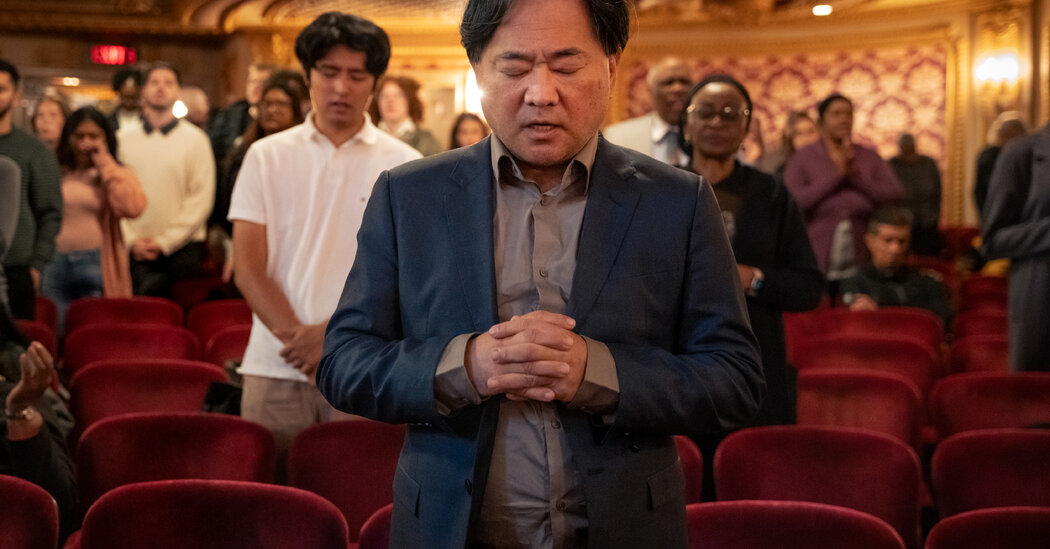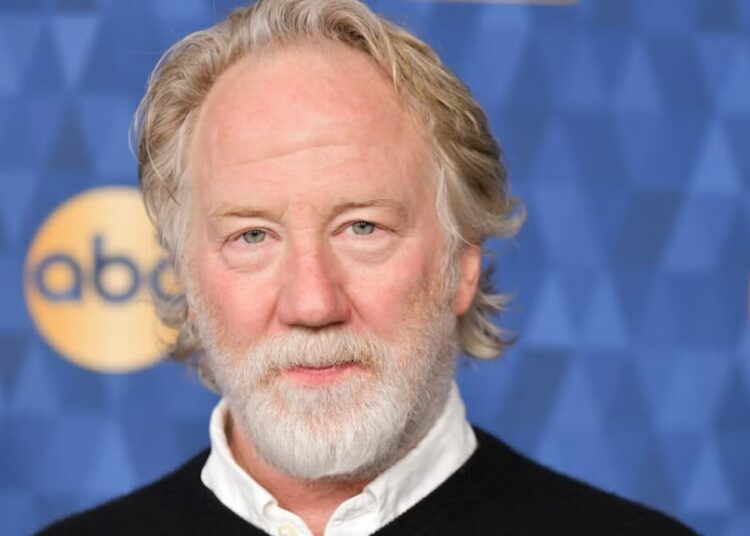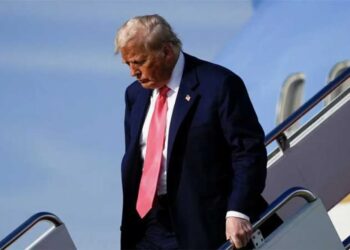
One day in March 2015, surveillance cameras at a thousand-year-old Buddhist temple on the outskirts of Tokyo captured a man wearing a hooded windbreaker, a white collared shirt and black shoes, dabbing at wooden pillars with oil on his fingertip.
Less than an hour later and 17 miles away, Japanese authorities said, a man with a similar build and clothing was caught on video anointing an offerings box at another site, a Shinto shrine founded in 643 B.C. during the reign of Japan’s first emperor.
The faiths predate Christianity by centuries, and the sites draw 12 million pilgrims and tourists each year. They venerate the Buddha and the Shinto kami, the spirits that the faithful believe animate natural forces and inhabit the land. The smears of oil, as the authorities saw them, despoiled Japan’s religious heritage.
The authorities found their suspect in New York, roughly 7,000 miles away, and issued arrest warrants for him on two counts of vandalism.
He is Masahide Kanayama, 63, a single, childless doctor who had devoted his life to helping women bear children; a man whose Christian faith was inseparable from his work. He has practiced in Manhattan for nearly three decades and is an expert in endometriosis, a condition in which cells similar to the uterine lining grow outside the uterus. His patients describe how his surgeries ended years of crippling pain and, in some cases, allowed them to have children.
“I believe the Holy Spirit works through me by giving me an ability to perform my unique surgical technique,” Dr. Kanayama said. “When guided by faith, medicine becomes a way to serve God by serving others. My goal is to let God’s love be reflected through my actions and services.”
Now, a decade after the hooded man was seen at the holy sites, that work may soon become impossible. The Japanese authorities say they found YouTube videos from 2012 in which Dr. Kanayama discussed anointing shrines with oil for religious purposes. They are seeking to bring him back to Japan for trial.
Dr. Kanayama’s lawyers said in a statement that he did not damage any sites, and added that “even if true, his actions damaged nothing.”
His lawyers have gone to federal court seeking to block the extradition, arguing that there is insufficient evidence to charge him. They have also asked the State Department, which has the final say on extraditions, not to approve this one.
The State Department recently told Dr. Kanayama’s lawyers they had denied the request, but U.S. officials agreed to delay any removal until Dr. Kanayama’s legal challenge is decided.
A federal appeals court heard oral arguments last month and could issue a decision at any time. If the court rules against the doctor, he would face extradition to Japan, his native land, and prosecution.
The charges could bring five years of hard labor in a Japanese prison.
One Sunday morning in mid-October, Dr. Kanayama entered the Times Square Church on West 51st Street near Broadway. The nondenominational church, a former theater, welcomes thousands of worshipers in person and online to services that draw on the Pentecostal tradition. There is a live band and gospel singing, and congregants approach the pulpit seeking healing. He closed his eyes as he prayed, sang and swayed to the music.
Dr. Kanayama, whose ethnic Korean heritage already makes him an outlier in Japanese society, came to his faith at 17 when his mother took him to an evangelical missionary church in Tokyo. There, he had a spiritual awakening that he says led him to become a Christian and move to the United States.
“I will show my healing power through your hands,” he said God had told him.
He attended Creighton University, a Jesuit school in Omaha, where in 1985 he graduated magna cum laude with a B.S. in chemistry; and in 1991, he obtained his M.D. from the Medical College of Wisconsin in Milwaukee.
In 1995, he completed four years as a resident at the Mayo Clinic’s medical school, and then moved to New York, where he worked for several years as a professor at the Mount Sinai medical school’s department of obstetrics, gynecology and reproductive sciences. He also began practicing at Greenwich Hospital in Connecticut, where he performs his surgeries, using an excision technique that he developed.
Dr. Kanayama, a legal permanent resident of the United States, now runs the New York Endometriosis Center in Manhattan, which he says has drawn patients from around the world, including Japan. The office includes a meditation room lined with rice paper and bamboo flooring. Dr. Kanayama said he wanted to provide patients with an atmosphere of tranquillity and calm.
“Healing is not only physical, but also mental, emotional and spiritual,” he said.
Jessie Lambiase, 34, a Westchester County resident who owns two fitness studios and a jewelry store, had long struggled with the pain and fatigue of endometriosis. Doctor after doctor seemed dismissive. One suggested a therapist.
She said Dr. Kanayama had immediately recognized her condition and told her it wasn’t all in her head. She has undergone two surgeries with him, most recently this year.
“He’s been the only doctor who has been able to help me,” she said. “Looking at a future where I still have this disease and he’s not here, and there’s really no other surgeon who does what he does — that’s terrifying.”
Mary Giuliani, a 50-year-old Manhattan writer and caterer, said she had seen a half-dozen doctors before Dr. Kanayama’s surgery finally relieved her pain in 2022.
She said that if he were extradited, the effect on patients would be dire, as so many could miss out on a life without pain or the ability to create a family.
“It’s only him,” she said. “There’s nowhere else to go.”
Dr. Kanayama’s schedule, his lawyers said, is booked months in advance, with patients from all over the world. He has told few of his patients of his legal predicament, and says he finds a haven in church, a respite from the long surgeries he performs during the week and the stress of his case.
Throughout much of the two-hour service that day at the Times Square Church, Dr. Kanayama stood in the packed rows, his left hand gripping a Japanese-language Bible and his right arm raised in the air.
He often carries that Bible, with its dog-eared pages and underlined verses. “I underline everywhere,” he said.
He has loved going to other churches as well. Years ago, he created a nonprofit called International Marketplace Ministry and traveled to Europe, South Korea, Japan and around the United States. He spoke to church groups and to businesspeople about living spiritual lives, not just in church but also in the workplace.
“I’m just a doctor,” he said. “But I know the Lord. I know God. I know how to communicate, so I just share my experience and I encourage people.”
Adherents of his strain of marketplace Christianity strive to marry their faith and their vocation, following the model of John the Baptist, who preached to tax collectors and soldiers. They believe that work life and spiritual life must be one.
Dr. Kanayama said he ended the trips and his nonprofit activities in 2015, after the Japanese authorities charged him.
“Anointing” appears throughout the Bible as a sacred practice. The oil, smeared, rubbed or poured, is a symbol that God has chosen a person or object for a holy purpose. It is used to sanctify physical spaces: In the book of Exodus, God tells Moses, “Thou shalt take the anointing oil, and anoint the tabernacle, and all that is therein, and shalt hallow it, and all the vessels thereof: and it shall be holy.”
At the ancient Naritasan Shinsho-ji Temple in the city of Narita, the Japanese authorities said Dr. Kanayama had left oil on pillars that were part of the main gate used to enter the sanctuary.
The gate was built in a traditional Japanese architectural style and is itself an object of worship, a temple official said in a declaration filed with the court. The oil had left blackish stains, the official wrote.
At the Katori Jingu Shrine in nearby Katori, oily liquid was left on wooden poles on both sides of the front stairs, on the stairs themselves and on the box where worshipers can make donations, a shrine official said in another declaration. The oil left stains, although over time they became almost invisible unless observed up close, the official said.
The Japanese authorities concluded that it was possible that one person committed both crimes in the 51 minutes that had elapsed between them. They also determined that the figure seen in the security footage at both sites resembled the driver of a gray Toyota Prius that was caught on an expressway tollgate camera around the same time.
The Prius’s license plate number led investigators to a car rental agency at a nearby airport, where Dr. Kanayama’s name was found in the rental records. Flight records showed he had traveled to Japan from New York a few days earlier.
Dr. Kanayama said he had been targeted because he was a Christian in a country where members of the faith had suffered repression for hundreds of years and today represent only about 1 percent of the population.
“This is a religious persecution,” Mr. Kanayama’s lawyer, Jeffrey Lichtman, said. “Why else would they be so enthusiastic about destroying not only this man’s life, but ending his ability to help thousands of women who suffer from a very serious medical malady?”
The Japanese consulate in New York did not have any immediate comment on the case.
On Dec. 6, 2022, Dr. Kanayama sat with his lawyers in a federal courtroom in Lower Manhattan as an American prosecutor argued that Japan’s extradition request should be honored. If the judge agreed, the question of whether to hand him over to Japan would be up to the U.S. secretary of state.
The prosecutor, Tara La Morte, said the standard for sending Dr. Kanayama back to Japan had been met. For one thing, as the mutual extradition treaty required, there was a crime in New York — criminal mischief — that was equivalent to the offense Dr. Kanayama faced in Japan. And the evidence had shown there was probable cause to believe that he had damaged the sites.
She pointed to the 2012 YouTube videos of a man Japanese officials said was Dr. Kanayama talking about pouring oil on shrines.
“This is evidence, your honor, of intent and motivation,” Ms. La Morte said.
Dr. Kanayama’s lawyers dispute whether Dr. Kanayama is clearly shown in the videos, and say that his comments about pouring oil on shrines were translated incorrectly. In court, Mr. Lichtman did not concede that his client had been present at the sites or had left any oil on them. But if he had, Mr. Lichtman said, the purpose had not been vandalism.
“There was never any intent here for him to damage anything,” Mr. Lichtman said. “He was there to purify.”
Ms. La Morte noted that the case was of particular significance to Japan because of other incidents in which historical sites had been vandalized.
“It’s important to Japan to figure out why it’s happening and who is doing it,” Ms. La Morte said.
Mr. Lichtman suggested that Japan’s motives were less benign. “This is a political case,” he said, citing what he called the relative insignificance of the allegations against his client weighed against the fact he is “a world-renowned OB-GYN” who had “helped thousands of women globally.”
“It’s our position that this is a grotesque abuse of the extradition treaty,” he said.
In January 2023, the judge, Edgardo Ramos, ruled that Dr. Kanayama could be extradited; a second judge, who was asked to review the case, concurred. Dr. Kanayama’s appeal is pending.
Dr. Kanayama’s recent visit to the Times Square Church came days after the State Department had denied his lawyers’ request to stop his extradition on legal and humanitarian grounds.
Afterward, on a bench outside, he turned the pages of his Bible to a passage from the Book of Micah he had underlined. He said its message was that God asks three things: Do justice, love mercy and humbly walk together with him.
During the service, the pastor had referred to people enduring hard times, people who were broken.
“I’m totally broken right now,” Dr. Kanayama said. “But I’m still alive,” he added. “They’re not crushing my spirit.”
The pastor, apparently alluding to a popular Christian song, had also said of God, “There’s no wall you won’t pull down, no lie you won’t tear down.”
“I think that statement is coming to answer my prayer,” he said.
Susan C. Beachy and Georgia Gee contributed research.
Benjamin Weiser is a Times reporter covering the federal courts and U.S. attorney’s office in Manhattan, and the justice system more broadly.
The post Accused of Desecration, a Doctor Faces the End of His Life’s Work appeared first on New York Times.



